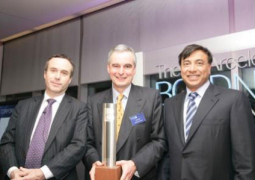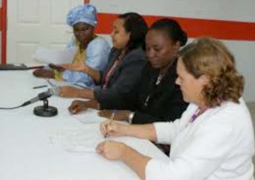Next year 2011 is an election year in The Gambia, when the country will hold Presidential and National Assembly elections. One year before these elections, the opposition People's Democratic Organisation for Independence and Socialism (PDOIS), is pushing forward with what they called Agenda 2011.
In this regard, the party on Saturday June 26th convened a press conference at the People?s Centre in Churchill's Town, to inform people about this recent proposal.
Addressing journalists, Halifa Sallah, the Secretary-General of the party, began the briefing by saying that it is an obligation upon political parties to inform people about their intentions at each given period of political process.
"As we face another election cycle, it is the duty of every sovereign Gambian, who is 18-years-old and above, to reflect on the state of The Gambia after 45 years of nationhood," he said.
In pursuit of Agenda 2011, Mr. Sallah revealed the party will be organising a political rally on July 31st 2010, at Latri Kunda Yerri Nganya, adjacent to the Mosque, where PDOIS held its first rally in 1986.
"PDOIS aims to reiterate again that it could function as a normal party within a multi-party system that seeks the mandate of the people on the basis of its principles, policies, programmes and practices.
"PDOIS is convinced that if who wins could concede to a two-year timetable in order to restore a constitutional or political system which does not promote self-perpetuating rule. The opposition forces could also agree to a transition programme to build a genuine multi-party system, founded on a genuine republican constitution based on a free and fair voting system that would give rise to the combined choice of the people."
He further elaborated that they favour a transitional administration after the APRC government that would last for the period of two five-year terms.
Sallah revealed that the recently held PDOIS congress had mandated Sidia Jatta, NADD National Assembly member, to be responsible for inter-party relations, and all those who wish to discuss inter-party matters should contact Honourable Jatta.
Halifa also believes that the country needs a new start that will enable all political parties to have a level playing field to contest free and fair elections.
"At the moment, the ground is not level or plain and each opposition party will have an uphill battle to wage to win an election. This is why PDOIS is of the view that a platform should be created that will enable the Gambian electorate to come together to vote for the change we want and need, in order to build the genuine democratic system that ensures that their consent will determine their manner of government."
He added that all those who wish to stand against the APRC candidate, be they members of political parties or independent personalities, "would accept to face each other at a primary, and would mutually vow to support the single candidature of the winner."
The winner, he said, will also agree to the terms and conditions of the agreement.
"PDOIS' congress called on all parties to hold congresses and consider what is offered by Agenda 2011 so that all parties will utilise their own platform to promote the determination of an opposition candidate through a primary, and prepare themselves for future multi-party contest after the transition."
Sallah added that they want their supporters in particular, and all those Gambian people who value their sovereignty, to know that the only transformation that is possible in 2011 is one that could attract the support of the 405,932 voters who did not vote for President Jammeh in 2006 and the 542,055 voters who did not vote for the opposition.
"As far as PDOIS is concerned, this transitional candidate will not have to be a PDOIS leader. He or she could originate from another party or civil society. He or she could be anybody selected by the people through a primary."
He also used the forum to voice out their disagreements with the UDP and NRP, details of which will come in our subsequent editions.



